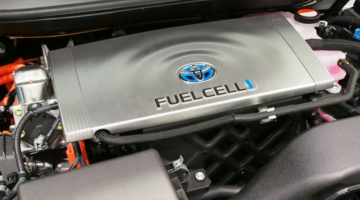
[Prices correct as of July 2017]
Although electric cars are generally more expensive to buy than internal combustion engine equivalents, their lower running costs (and obviously their lower environmental impacts) mean they are still an attractive alternative. When it comes to the running costs of electric cars, there are two main figures: the cost of charging, and how far that charge will get you (i.e. the cost per mile). Here, we’ll run you through how to calculate both, and the different factors that can affect them.
Charging costs
How much it costs to charge your car will be influenced by the efficiency of the charger, as well as where you choose to charge your car. If you charge at a public charging point, you will pay whatever rate the company charge you.
If you charge at home from the national grid, the cost will depend on which electricity tariff you are on. Charging at off-peak times with a time of use or Economy 7 tariff will be the cheapest. Otherwise, you will normally be paying around 12p per kiloWatt-hour to charge from the mains.
Cost per mile
The cost of running an electric car per mile depends on how much it costs to charge and how far it can go before requiring charging again (its range). The range of electric cars varies widely, just as the MPG of petrol/diesel cars does. Until fairly recently, their range was limited to less than 100 miles, but it is now commonly as high as 250 miles.
Just like a normal car, the efficiency of an electric car can only be estimated, as there are a lot of variables which affect it. These include the weather, the driving style and speed, and how heavily the car is loaded. The ‘real-life range’ will be different from the full-efficiency one specified by the manufacturer.
So, we’ve got the figures, but what do they mean in real terms? To determine the relative efficiency of electric cars, we will now compare the costs above with those of a similarly-sized petrol model.
The sums
The battery size in an electric car is the rough equivalent, practically speaking, of the fuel tank size of a petrol/diesel car. By working out how much it costs to fill either, and then dividing this number by how many miles you expect to get out of the tank, you can figure out an average cost per mile.
Electric car
Battery capacity x cost per unit of electricity = cost of a full charge
Cost of charging ÷ range = cost per mile
Petrol car
Fuel tank capacity x cost per unit of petrol = cost of a full tank
Cost of fueling ÷ range/fuel efficiency = cost per mile
The results
We have used the example of two similarly-sized cars, a Renault Clio Expression 1.2 and a Renault Zoe Expression Nav (the cheapest of each model). The ‘real-world’ range for the electric car is given, rather than the specified max. range at full efficiency.
Renault Zoe (Electric)Renault Clio (Petrol)
| Tank/battery capacity | 41kWh | 45L |
| Cost per unit of fuel | 12p | £1.19 |
| Total cost of charging/fuelling | £4.92 | £53.55 |
| Range (miles) | 186 | 504 |
| Cost per mile | 2.6p | 9.4p |
As you can see, the cost of running an electric car is far cheaper than a petrol car – and cheaper still than a diesel car. Add to this that electric cars are virtually maintenance-free, and you can see why they are becoming so popular these days! For more information on electric cars, grants and charging, see the tabs above.












As the petrol Clio is the same price as the Clio without battery pack, you appear to conveniently leave out the monthly cost of renting the battery pack, currently £90 for the Zoe. Assuming 900 miles a month, this adds 10pence per mile. Therefore 12.6p per mile. Of course, as the battery hire is fixed, the cost per mile rises with lower mileage. I’m all for moving away from petrol or diesel but let’s not fudge the figures along the way.
I’m afraid I must agree with Gary’s comment. Whilst I am eager to embrace the electric revolution, so many articles on the apparent savings forget to mention this hidden battery hire cost (or deliberately choose not to). Once that is factored in, an electric car is both more expensive to buy AND more expensive to run, with a smaller range and reduced refueling options to boot (fewer places to charge and longer to charge). Hiding this fact will only anger potential buyers and serve to hinder take-up of electric vehicles with all the benefits they will bring. We must be honest in our debate if we are to convince enough people to make the switch worthwhile.
What about batteries, how much do they cost and and how long do they last?
You have missed out an important factor – the lease of the battery from Renault!
For 10,000 miles per year this is £90 per month or 10,000/(12×90) = 9.25p per mile
Adding this to 2.6p is 11.85p
… dohhh!
I am currently looking at the economics of going electric as I need a replacement car for my diesel.
I have had quotes.
This article is an appalling misrepresentation of the financial truth.
Thanks for the information I needed
I’m saving!!